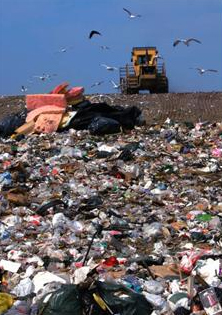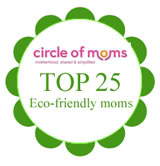Biggest green guilt is wasting food according to survey
When I was growing up, I was instructed at every meal to finish up “because of the starving Armenians.”
At the time I didn’t think much about how it could possibly help the Armenians for me to eat every morsel. But whether it made sense or not, it sure stuck in my brain.
These days though, that phrase has given way to realizing that food most people toss, ends up in landfills contributing to the green house gas problem. Wasting food has a direct impact on the future lives and health of every being on Earth.
So when I saw this survey from the Shelton Group I wanted to share it because it points out the seriousness of the problem. But hopefully it also, (as I said last week in a post about how guilt can be good when it spurs us to action) will move people to think more seriously about what they do with their edible leftovers. (Here are a bunch of tips to help stop waste and in the process, save money.)
“This is an issue that gets right to the core of who we are as Americans. We were all taught to waste not, want not, and trained that wasting food equals being a bad person,” said Suzanne Shelton, founder and CEO of Shelton Group, which conducted the survey. “Yet the average household throws out 470 pounds of food every year, making it the largest component in our nation’s landfills. So I’m afraid we have plenty to feel guilty about.”
The survey, called Eco Pulse, found that an astonishing 39 percent of Americans feel guilty about “wasting food.” In comparison, only 7 percent felt guilty about “not sticking to an energy-efficient thermostat setting,” and just 6 percent felt guilty about “using chemical lawn or plant fertilizers.”
Food waste in America has grown 50 percent since 1974, and accounts for more than one quarter of the total freshwater used and roughly 300 million barrels of oil a year, according to a government study. In fact, Americans waste about 27 percent of food available for consumption, costing the average family of four roughly $600 a year.
“We all have the best of intentions,” Shelton said. “We fill our grocery baskets with healthy meats, fruits and fresh vegetables, with big plans for a week’s worth of home-cooked meals. Then, we get swamped at work, or have to get our kids to various activities and we find ourselves picking up a pizza on the way home. By the end of the week, we’re throwing out the spoiled food from our refrigerators.
“That doesn’t mean we should go back to buying unhealthy frozen dinners and telling our kids to keep eating until their plates are clean,” Shelton added. “We just need to be more careful about buying what we need, and using what we buy.”
The annual survey, which polled 1,013 Americans and had a margin of error of 3.09 percent, asked: “Which (if any) of these things do you feel guilty about?” Americans’ top answers:
- Wasting food – 39 percent
- Leaving the lights on when I leave a room – 27 percent
- Wasting water – 27 percent
- Not unplugging chargers/electronics when not in use – 22 percent
- Not recycling things – 21 percent
- Forgetting to bring reusable bags to the store – 20 percent
- Letting the water run while brushing teeth, washing dishes, etc. – 20 percent
Americans’ bottom answers:
- Running the dishwasher or clothes washer when it isn’t completely full – 10 percent
- Not making energy-efficient home improvements – 10 percent
- Washing clothes or dishes on the hottest setting – 9 percent
- Not buying CFLs or LEDs – 9 percent
- Not sticking to an energy-efficient thermostat setting – 7 percent
- Using chemical lawn or plant fertilizers – 6 percent
- Not being careful about how long/when I water the grass – 6 percent
Shelton said there clearly is an opportunity here to help people find ways to minimize food waste.
“All of us could be better at shopping, cooking and using up leftovers,” Shelton said. “Keeping food from going to waste will benefit our wallets as well as the environment. And we’ll all feel a lot less guilty.”
Are you doing anything to cut down on food waste? If so, what?
If you believe this is an important issue, please tweet: RT@CelebrateGreen More people feel guilty about wasting food. Let your guilt move you to take action. http://ow.ly/d6iSf
Lynn Colwell and Corey Colwell-Lipson are mother and daughter and authors of Celebrate Green! Creating Eco-Savvy Holidays, Celebrations and Traditions for the Whole Family, and founders of Green Halloween®.



























[...] what you buy. This might sound obvious, but Americans waste hundreds of pounds of food per person per year. It is easy to tell yourself that you don’t want to eat lentil stew for dinner and buy taco [...]